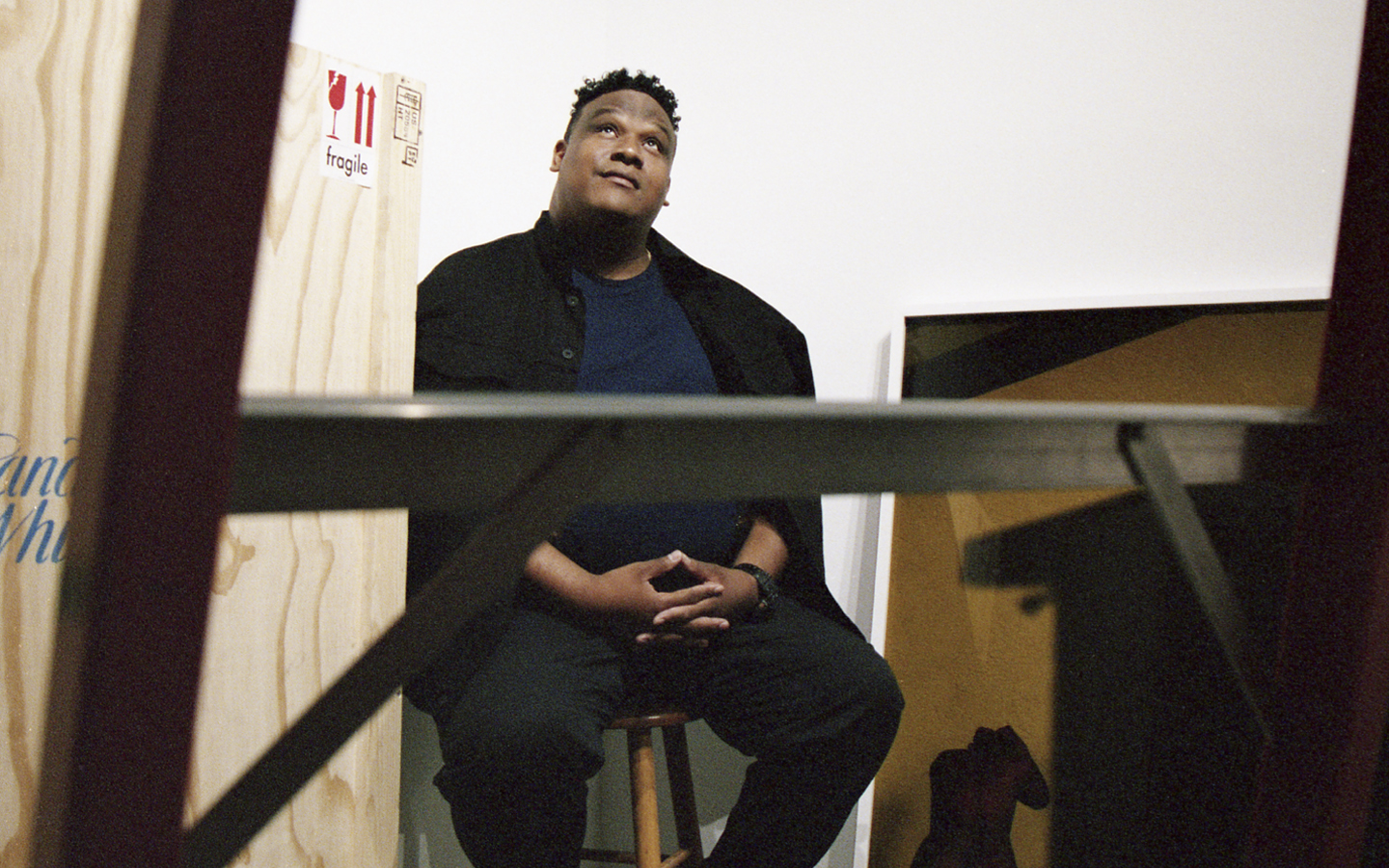
Lee Kaplan of ARCANA: Books on the Arts
TEXT ARJUN RAY
VISUAL ASHLEY GUO
ARCANE:
understood by few;
mysterious or secret.
Humans are naturally attracted to secrets. A secret describes the magnetic interaction between privileged information and the attention of an outsider. Secrets are tended, mined, and archived by those of peculiar dedication to a given topic. In return, those people serve as arbiters between reams of esoteric knowledge and inquiring minds. There has always been value in deep study of the arcane. The history of humanity is enriched by the subtext provided by niche information, adding nuance, color, and dimension to otherwise conventional understanding. Part of what necessitates the accumulation of esoteric knowledge in individuals is the work it takes to deeply mine topical areas. Often, an entire life is dedicated toward understanding a small handful of topics. Lee Kaplan is one such keeper of secrets.
Lee Kaplan has lived many lives in his sixty-plus years, but for the last four decades, he has been the owner and curator of Arcana, an art book store located in Culver City, California. The store resembles in unequal parts a museum, an archive, a library, and a record store. Rows upon rows of books sit on massive parallel shelves, individually wrapped in plastic sleeves like vinyl records. Visitors are greeted with a quiet and reverent ambiance, but also with warmth. “In a way, it’s like you’re walking into my house,” says Lee.
Arcana is a natural extension of Lee’s person. Technically, the products at Arcana are the books themselves, but such a narrow definition of the store is easily eclipsed when you account for the added value of Lee’s expertise. In fact, Lee himself is the product at Arcana. Over several decades, he has amassed a rarefied and singular collection of art books. The collection orbits around his specific personal interests in art, but it also includes more shrewdly chosen titles that meet popular demand and help keep the store afloat. Many well-known artists have trusted Lee to guide them from rough sketches and half-formed ideas to the reference material that they needed in order to continue their work. Arcana hedges its continued existence on the necessity of human expertise, won over years of hard work and monastic toil, and of course, the value of owning physical books.
Throughout history, the medium for artwork has passed from engravings in stone, to paint on canvas, to photographs, to reproductions printed on paper, and finally, to light emitted from behind glass screens. Unlike traditional artistic formats, consuming art through digital media is an intangible experience. Digital images are collections of bits, scattered temporarily across the transistors of your mobile device, or perhaps oxymoronically “located” in the cloud. You cannot hold, smell, or feel the bits that make up a file the way you can a book. The value of a book is greater than just the information contained within it.
There is no doubt that digital media has democratized the consumption of art. Anyone with a cell phone can find popular artworks right at their fingertips, without having to travel or pay for viewing access. With search engines that catalog petabytes of information, the amount of work it takes to find digital media seems to have decreased exponentially. While this might seem like a good thing, perhaps it is a complicated thing instead. Along with digital media comes a culture of atomized consumption of information—listening to singles instead of albums, reading articles instead of books, and accepting lower quality stand-ins in exchange for the real thing. Along with the dwindling interest in physical, holistic collections comes the slow but steady disenfranchisement of cultural experts, such as Lee.
In conversation, Lee comes across as erudite but patient, highly opinionated, and even a bit difficult from time to time. These, among other qualities, add up to a human who is an irreplaceable cultural touchstone—a man built from a lifetime of immersion in his work. Throughout Lee’s life, a specific set of interests have woven themselves into the formative events that eventually led to Arcana. Namely, music, art, books, and the act of building and maintaining collections.
As a child, Lee worked at Campbell’s bookstore, which served UCLA and the surrounding areas. Lee’s grandfather noticed that Lee had taken a keen interest in books, and offered Lee his first paying job; cataloging the titles in his expansive personal library on 4×6 index cards. His grandfather instilled in him the notion that books are exceptionally important objects, and that they should be handled with utmost care and respect. He also taught Lee the importance of building one’s own book collection, a once common practice that has declined in recent years.
As a developing young artist, Lee felt a particular resonance with the works of Mark Rothko. When his mother would travel through New York City, he would ask her to pick up catalogues from the Marlborough Gallery, which housed a Rothko collection. Lee marveled at the beauty of the catalogues, both as books and for the art contained within them. These catalogues were the first art books he ever owned.
Shortly afterward, he picked up a job at Vogue Records. Vogue was Lee’s first exposure to the deeply knowledgeable, deeply nerdy culture that is pervasive in record stores. Record stores engender a high level of reverence and respect for archival knowledge, building naturally off of Lee’s tendencies towards books. It’s no coincidence that almost every book in Arcana is encased in an archival sleeve. Lee went on to produce free jazz concerts in Los Angeles in the late 70s and early 80s and play in several bands. Over the years, Lee’s focus shifted from musician to fine artist, and then finally, to running Arcana. In fact, running the store has proven to be all-consuming. Lee has stopped making music and art. Although these past lives have come and gone, they have left indelible marks on the DNA of Arcana.
Arcana is an ephemeral hub. There is a certain ambiance that forms itself around the store, its long shelves, the smell of paper, and the sound of pages turning. Beyond the physical location, there is a metaphysical dust that has settled on Arcana over years of transactions, exchanges of ideas, crucibles burned, and ashes scattered. A wealth of information has passed from Arcana into the eyes of artists, and then back into the world through myriad productions and creations. For anyone paying attention, you can feel part of this history when you first walk in. There is no equivalent in the digital world.
Lee is reasonably skeptical about what the future holds for physical books stores. If retail giants of physical media catering to popular tastes such as Borders books and Hollywood Video cannot survive the transition into the digital age, what chance do single-location brick and mortar stores have, especially those that cater to exceptionally discriminating tastes? When Arcana is gone, the likelihood of someone filling the void left behind is lower than ever—a bellwether for the next wave of digital materialism. We continue to lose sight of the materials, collections, and humans who have historically rendered our world in more vibrant colors.
In the age of digital media, we are under the illusion that everything important should be easily available, and therefore that nothing important should be secret. With Google Search providing effortless access to massive amounts of information, one might believe that there truly are no secrets left. What happens to the collectors and arbiters of niche information? What happens to information that is so esoteric that it never is indexed in search engines? Are we willing to accept the implicit lack of importance placed on truly rare things in this age geared toward utilitarian consumption of information?
To be clear, Arcana is far from dead. On any given weekday, the owners and staff hurry about taking inventory, listing items, dealing with suppliers, and consulting with customers. The store and its contents have evolved over the years in order to strike a balance between Lee’s original intentions and changes in demand. When Arcana came into existence, Lee was primarily stocking books on African, Oceanic, and pre-Columbian art. Over time, the store has shifted focus to include contemporary art, architecture, and photography. When asked how he would proceed if he could do it all again, Lee admitted that he would have loved the luxury of focusing on exceedingly rare books—books that have enormous cultural value but little value as tangible assets.
Lee and his wife Whitney share a life that revolves entirely around running Arcana. They met in 1998 when she was working for Sundance Film Festival. She eventually left Sundance and joined Arcana to take on the development of the internet business, and they’ve been a working couple ever since. There’s a wonderful simplicity to their partnership. They wake up together, eat together, work together, and go to sleep together. Whitney is a logistical maven and happily performs all the tasks Lee least prefers—which frees Lee up to talk to collectors, dealers, and clientele, and do all of the curatorial and interpersonal work required to keep Arcana alive.
When asked to give advice for young entrepreneurs, Lee emphasized the importance of tapping into youthful energy while one still can. The sheer force of will and labor required to design your own career may benefit from and even require this kind of drive. At 63 years old, Lee is in no way ossified, but he remarked,
“I have to say my enthusiasm is maybe not as strong as it was when I first started. You know, when I first started this business, I would work 14, 16, 18-hour days for weeks on end because that’s what it took to make this stuff happen.”
Somewhat ironically, this massive investment into Arcana is often recognized in less than helpful ways by visitors. People will “rediscover” Arcana every few years, telling the staff that they are happily surprised that it still exists, and then fail to purchase anything. This type of interaction implies that Arcana can subsist on congratulations and well-wishes instead of regular book sales. Other visitors, upon finding an interesting-looking book, immediately whip out their phones to take pictures of themselves holding the product for social media, signaling to their followers that they are well-informed consumers of culture. This rather cheap trick played out on Arcana’s hard-earned collection reads as particularly irksome and disrespectful to Lee.
We are entering a future where physical bookstores become scarcer by the day. Online megastores increasingly hold a monopoly on the sale and distribution of books. There is a palpable threat to the existence of curated book collections such as the one at Arcana, as well as to the people who dedicate their lives to study, grow and maintain these collections. Lee lamented the deaths of his peers in the bookselling industry. When these people die, the public loses access to these often rare books as the stores shutter. There are no inheritors to their craft, as the market no longer supports this line of work. Along with the loss of these experts, we lose their lifetime of accrued knowledge, like libraries burned to the ground overnight. Technology has swept so many conventions and hard-built livelihoods into the undertow, in the name of disruption and technological progress, that many do not even have time to comprehend what is being lost. The information age appears to value violent change as a reason onto itself.
As conscious consumers, we need to rediscover our love for literature and art, and our ability to focus. Increasingly, doing one thing at a time—like reading a book or taking in a piece of art—has become a radical departure from the norm. We expect to be inundated with information from all angles at all times. Multitasking leaves little room to focus on something complicated, beautiful, difficult, or longer than a few paragraphs. If we can rediscover our love for literature and the immense importance of art as a reflection of the human condition, the products we buy and the experiences we seek can help keep places like Arcana and people like Lee from going extinct.




